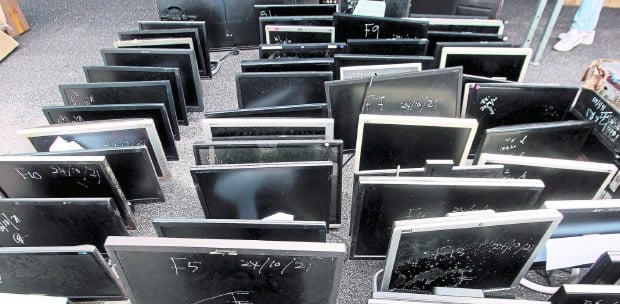Digital sobriety is a principle that refers to consumers' responsible use of digital technologies to reduce the need to purchase high-powered devices, lessen the need to frequently replace such devices and avoid any energy-intensive practices.
In other words, use digital technologies wisely. Digital technologies themselves carry a wide meaning. They refer to electronic tools, systems, devices and resources that generate, store or process data.
Common examples of digital technologies are websites, online buying and selling, online games, smartphones, cryptocurrency, e-books, video streaming, blogs, ATMs, digital cameras and many more.
Efforts to promote the principle of digital sobriety are based on the awareness of the negative impact of digital technologies on the environment, especially on energy consumption and increased carbon emissions.
The contribution of digital technologies to global greenhouse gas emissions has increased by 50 per cent since 2013, from 2.5 per cent to 3.7 per cent of total global emissions.
Another study by the Borderstep Institute estimates that greenhouse gas emissions from the production, operation and disposal of digital equipment and infrastructure were between 1.8 and 3.2 per cent of global emissions up to 2020.
The increase in electronic waste, or e-waste, is another environmental impact of digital technologies. Based on the Global E-Waste Monitor 2020 Report, a total of 53.6 million metric tonnes (Mt) of e-waste was generated globally in 2019, an increase of 21 per cent in just five years.
The report also shows that e-waste is expected to reach 74 Mt by 2030, making it the world's fastest-growing waste in the domestic waste stream, largely due to the high utilisation rate of electrical and electronic equipment, short lifecycle and limited repair options.
From the per capita e-waste generation perspective, Malaysia produced 364 kilotons (kt) of e-waste in 2019 or an average of 11.1kg per capita, which is high for a small nation with 32 million people.
This is almost equal to developed countries, such as the United States (21kg), Japan (20kg) and New Zealand (19.2kg). In Southeast Asia, Malaysia ranks second after Singapore (19.9kg), while other countries recorded lower figures — Indonesia (6.1kg), Thailand (9.2kg), Philippines (3.9kg) and Laos (2.9kg).
Meanwhile, mechanical cooling is responsible for 25 per cent of the total energy consumption in the data centre. In addition, raw materials, such as lithium, cobalt, rare earth, gold, platinum and a lot more, are also needed in the production of digital tools and devices.
These raw materials can be recycled but, unfortunately, the recycling rate of e-waste is still low. The individual way of using different digital technologies has different environmental impacts as well. For example, opening many applications simultaneously, turning on the device for longer hours, storing too much unused data and so on will affect energy consumption.
Many consumer activities connected to digital technologies also affect energy consumption and greenhouse gas emissions. For example, every search query releases about 1.45g of carbon dioxide.
If a person does 50 searches a day, 26kg of carbon dioxide will be emitted in a year. Imagine if the number were multiplied by millions of Internet users globally, the amount would be huge.
Therefore, there is a need to revitalise the digital sobriety principle in society. In general, the principle aims to educate prudent use of digital technologies. This includes moderate use of digital technologies.
It is important to remember that a simple act, such as sending an email, will have a certain impact on the environment. Sending an email is preferable because it can reduce the use of paper, leading to fewer trees being cut down and it will also contribute to forest conservation.
Regrettably, this assumption is not necessarily true, especially if we go beyond the limits in the use of digital technologies.
As users or consumers, we could optimise the use of devices or tools by turning them off when not in use, deleting unused data or uninstalling unused applications.
So use the devices or tools longer. In other words, do not submit to the need of buying the latest version of smartphones or laptops. Instead, use the devices as long as possible and opt to repair them instead of buying new ones.
The writer is a Fellow at the Centre for Science and Environment Studies, Institute of Islamic Understanding Malaysia (IKIM)






